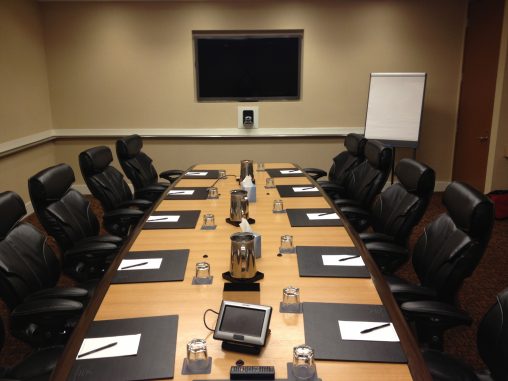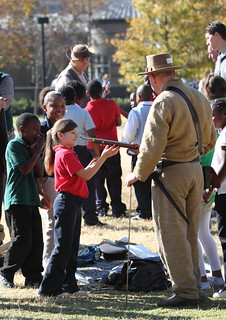As a follow-up to my post on what I've learned over the years about hiring people, this is a similar list of what I've learned about training and onboarding people as you welcome them into your organization.
Many organizations reduce training to a pretty simple process ("here's the training manual, here's your trainer, go"), but I find it to be one of the most complicated and fascinating periods in someone's life with an organization. The initial days, weeks of someone's employment (or, in a not-for-profit context, someone's time volunteering or serving on a board) are highly influential in shaping the experience they're going to have in the long run, and the work they're going to do.
It's a time when they start to reconcile their "outsider" impressions of what you do and how you do it with what they see as a new "insider" with fresh perspective. It's where any idealism and over-simplification that happens during the hiring process runs up against the nuances of internal processes and the texture of individual co-worker personalities. Training can prompt many moments of truth about the new person's image of themselves as a part of your organization: "do I belong here?" "are they going to like me?" "can I live up to hopes/expectations?"
From the perspective of the people doing the training, then, I think successful training is a careful balance between providing enough structure to properly educate and acclimate the new person to your organization while also allowing enough freedom and flexibility to accommodate their learning style, pace, interests and questions - especially the "why are you doing it this way when you could do it this other way?" ones.
Whatever you do, don't figure out training on the fly. Don't let it be a 100% self-directed experience in some hope that throwing someone fully into the deep end is the best way they'll learn. And don't underestimate the return on investment you'll get from an intentional, comprehensive approach to training.
As the process gets started, minimize assumptions. Communicate clearly and directly with the trainee (a word that feels a bit demeaning but is useful here) about every detail of their first moments as a part of your organization: where they should be at what time (and in what time zone, if you're a distributed team), in what medium the training will be conducted (in person, text chat, audio chat, video chat, in groups or one-to-one), how long the sessions will be, what they need to bring, and anything they need to do in advance. Give your trainee every opportunity to get past nervousness and make a great first impression by removing unnecessary vagueness in these critical first days.
Communicate expectations and set clear training goals. "Over the next X hours/days/weeks we're going to walk through everything from this to that. Your main trainer/mentor/buddy will be this person and they are your main point of contact for the process, ask them whatever you want. Here's the format we'll use, here are the materials we're going to cover, and here's a list of all the things we're going to touch on. Here's how we'll track your progress through this training, and here's what we expect from you at the end of the process." And then make sure all of this information is known to the wider team and company. Continue reading "On training people" →



